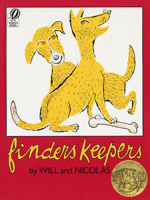Doctor Who: Dead of Winter
(Part of the Doctor Who: New Series Adventures (#45) Series, Doctor Who (#2) Series, and Doctor Who: The History Collection Series)
Select Format
Select Condition 
Book Overview
Related Subjects
Contemporary Fiction Foreign Language Fiction Literary Literature & Fiction Short Stories SpanishCustomer Reviews
Rated 4 starsAll-time favorite childhood book.
The Sailor Dog is a wonderful story and the artwork is great. To indulge a bit of nostalgia I have been trying to find an original printing. The reprints omit key pages so an original copy is important to me. After looking for some time I thought that I found a 1953 printing. Whether I misread the description or was mislead by an inaccurate description I can not say. I received a 1981 copy in very good condition but it is...
0Report
Rated 5 starsI loved this book 50 years ago and was thrilled to find it
This book spoke to my soul as a little child (in the 1950s) - dreams of making it on my own, seeing the world, being adventurous. For years I looked for it, not remembering who it was by or the name. What a thrill to find it now and to be able to buy it for my friends' children and grandchildren! Thank you to Golden Books for bringing this back. But please give us an edition with all the illustrations and copy!
2Report
Rated 5 starsI live the life of Scuppers, a dream from my childhood
As a child I was read the story of Scuppers and drifted through the book's wonderful illustrations for hours. As a grown up I have a sailboat to sail aboard, as an engineer I keep everything organized (my shoes have one particular place on our boat), my wife has awakened in me the joys of travelling far from home, and I have always pursued every avenue to reach my goals. This book captured my fascination as a child like...
1Report
Rated 5 starsI based my whole life on the doggy wisdom of Scuppers.
Excellent illustrations and a wonderful story about this can-do dog named Scuppers. Great cozy scenes, adventure, rocking boats, ship wrecks, house building, everything you ever need. The best book of my childhood.
1Report





























